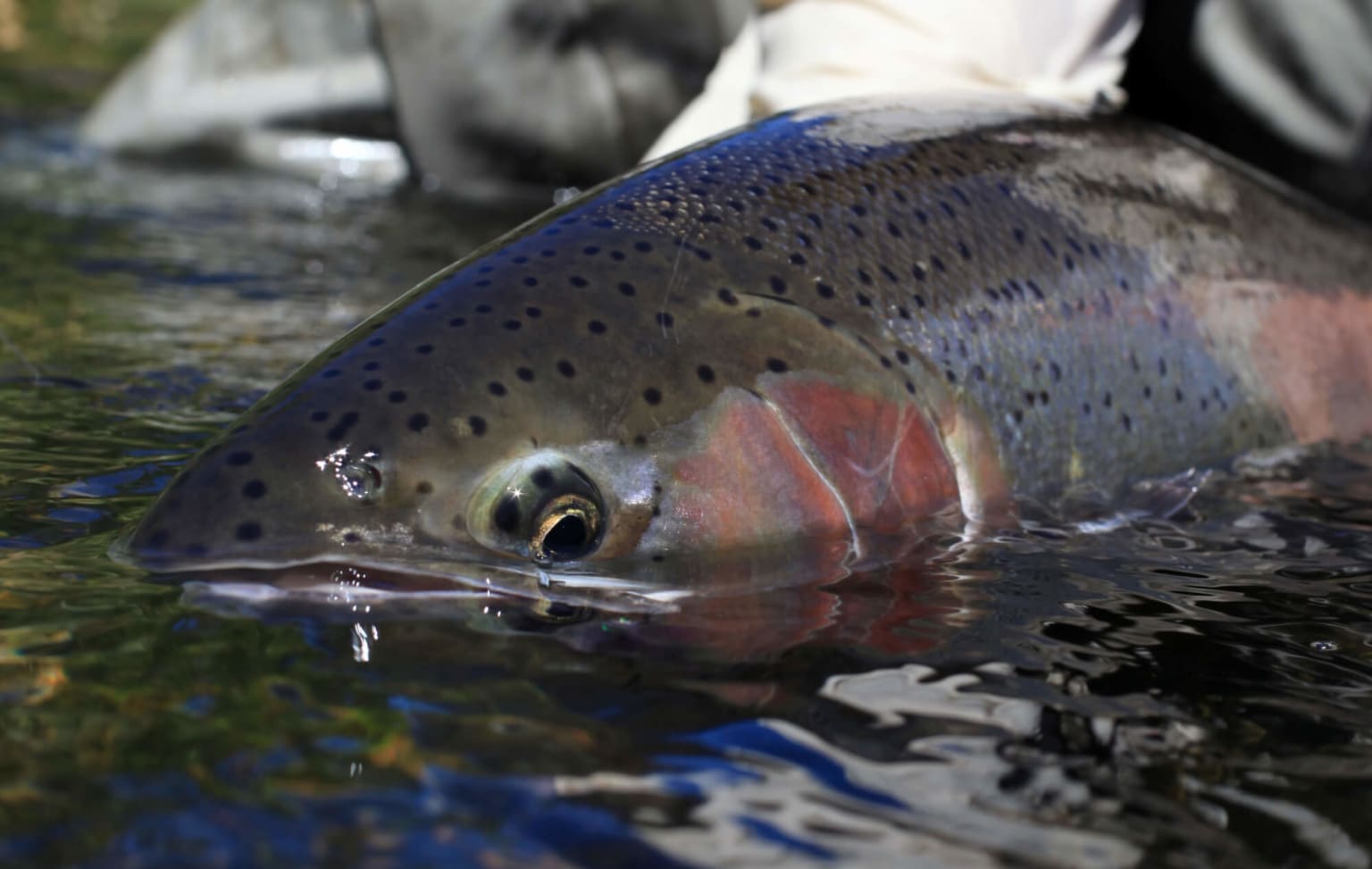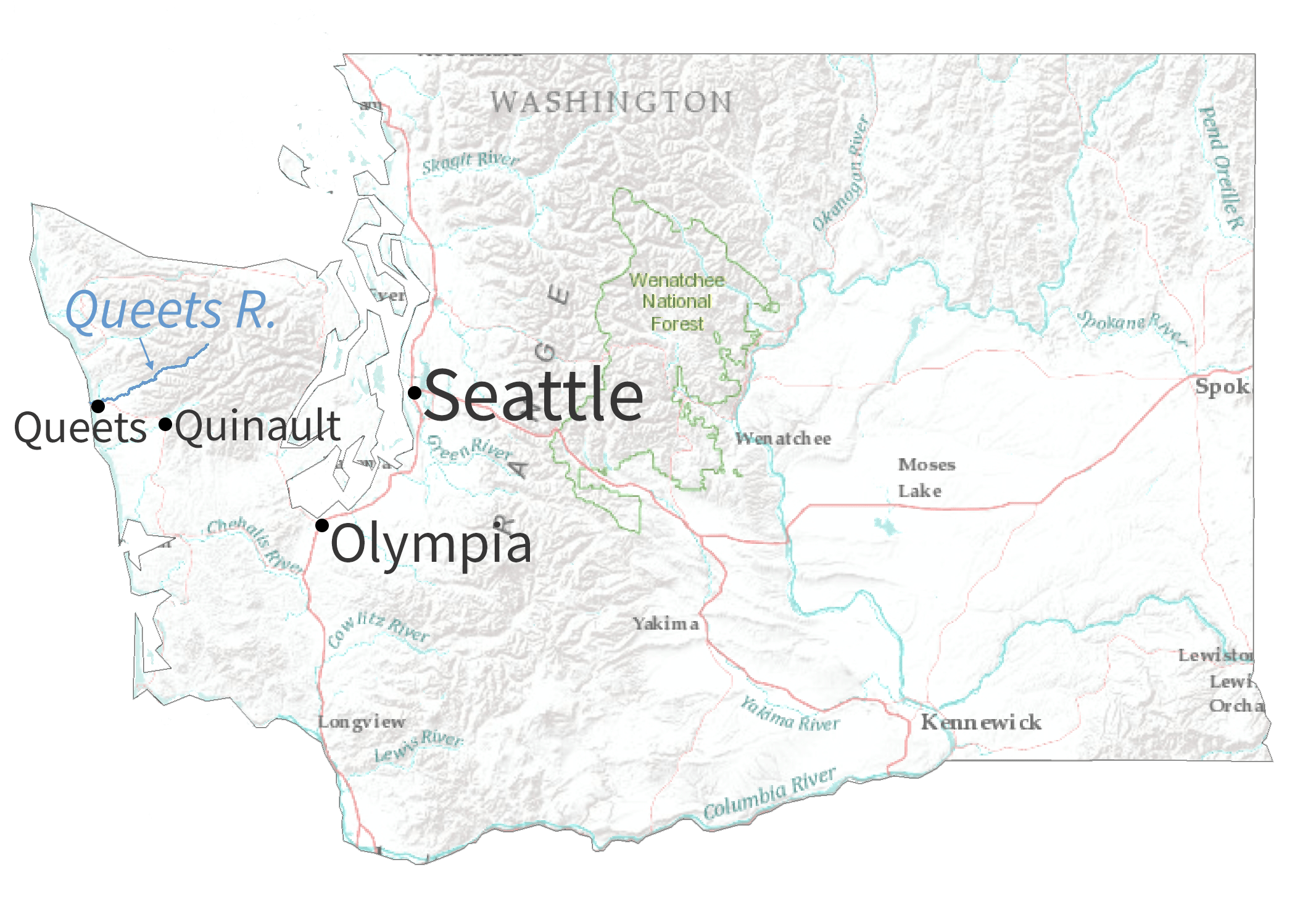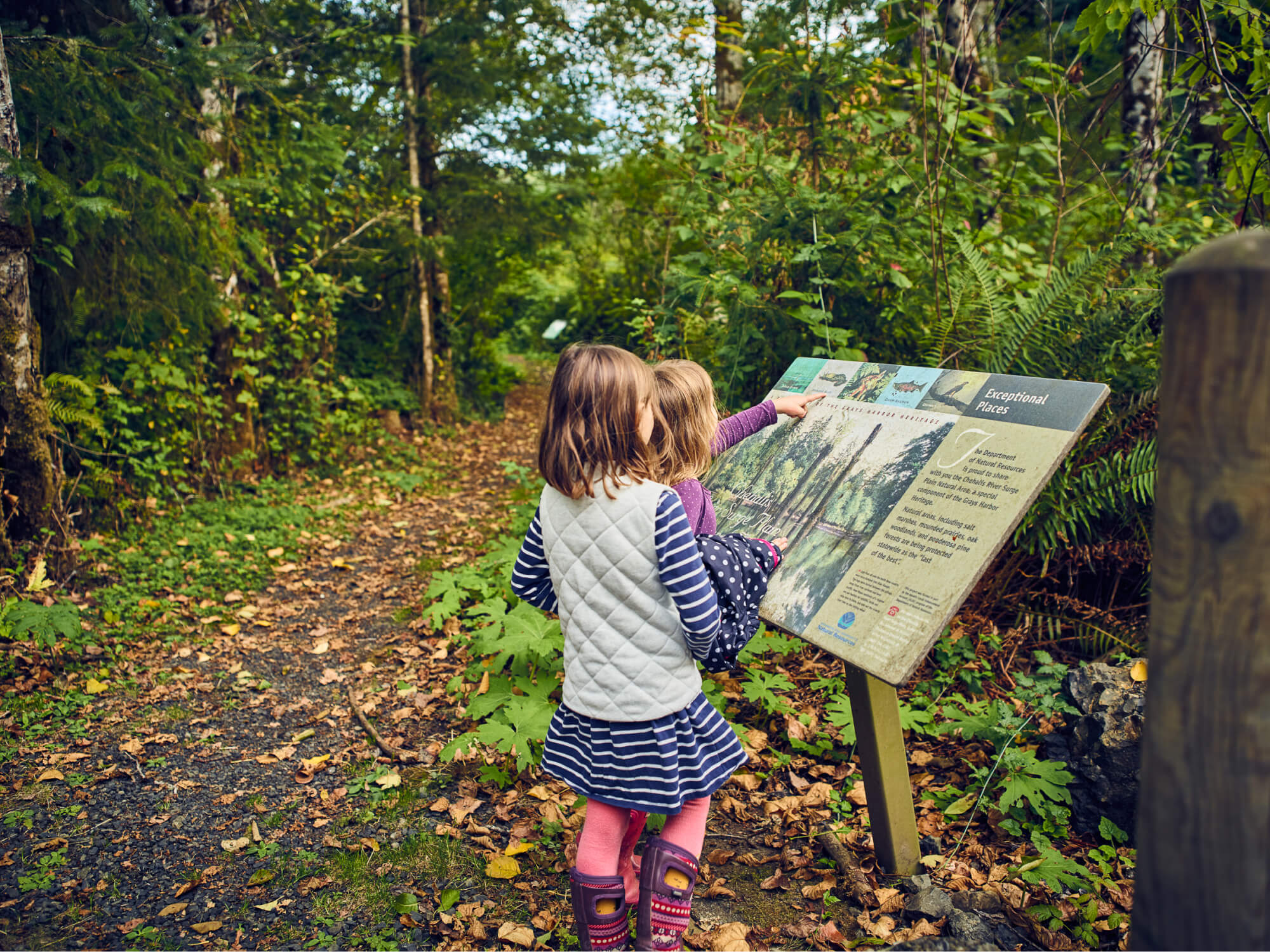
Fish
With national park protection and no dams, the Queets has a pure and relatively robust assemblage of native fish, including one of the healthier wild steelhead populations in the Northwest. With key fish-producing tributaries like the Clearwater, Salmon and Sams, the basin also has relatively healthy runs of Chinook, coho and cutthroat trout, as well as bull trout, Dolly Varden, Olympic mudminnow and three species of lamprey.

Wildlife
Lush, primordial rainforests are home to northern spotted owl, marbled murrelet, Pacific fisher, Roosevelt elk, Olympic black bear and black-tailed deer. The upper basin is home to animals like Olympic marmot and grouse, as well as diverse alpine flora. Hundreds of bird species are found throughout the basin, from the high meadows to the wild Pacific Coast.
-
Paddle
The mainstem Queets has a beautiful Class II run, while the tributary streams kick out bigger thrills. Winter rains bring Class IV-V whitewater on the Sams River and the Clearwater, while Matheny Creek, a favorite among advanced boaters, delivers continuous, fun drops in a gorgeous bedrock canyon. Scout carefully and expect portages—log hazards exist all year.
-
Hike
Explore rainforests of mythical proportions along the three-mile Queets Campground Loop, which traces the Sams and Queets rivers and passes through meadows dotted with wildflowers in May. Summer adventurers tackle the longer Queets River Trail, which requires a river crossing (doable below 1,000 CFS, check flows), but rewards hikers with one of the world’s largest Douglas firs, a 17-foot-wide megatree.
-
Fish
A notable winter steelhead run awaits anglers who are patient enough to wait out blown river conditions. A popular float is Harztell Creek to the Clearwater/Queets Bridge. For more solitude, head up to Queets Campground to bank fish or float the stellar stretch down to Hartzell Creek. Fall brings big Chinook and coho, and there are plenty of cutthroat in summer. Check regulations; no license is required in the Park. The Salmon River (a tributary to the lower Queets) is known for its run of hatchery kings, chased primarily by gear anglers.
The WRC Story
In 1999, Western Rivers Conservancy acquired and conserved the last unprotected stretch of the Sam’s River by purchasing an 89-acre property at the confluence of the Queets and Sams rivers. The Sams is a vital salmon and steelhead tributary of the Queets, and the property is critical for fish and wildlife. Over 1.5 miles of the Sams River flows through it, and meandering side channels function as nurseries for juvenile, finger-sized salmon and steelhead. WRC conveyed the parcel to the Olympic National Forest, permanently conserving this reach of the river and its side channels and completing protection of the Sams River, from source to confluence. The property, now part of the national forest, sits at the southern edge of Olympic National Park, just upstream of Queets Campground and the Queets River Trail. The project not only benefits wild runs of steelhead, coho, Chinook and cutthroat trout to this day, it permanently conserved habitat for marbled murrelet and northern spotted owl, two endangered birds that depend on healthy old-growth rainforests for survival.


Best Time of Year
- Steelhead fishing
- Jan-Mar
- Salmon fishing
- Oct-Nov
- Trout fishing
- Summer
- Hiking
- Summer-fall
Go Deeper
-
Queets Area Brochure
(National Park Service)
Learn More -
Queets River Trail, Washington Trails Association
(Washington Trails Association)
Learn More -
Record Trees: Forest of Giants
(Olympic National Park)
Learn More


